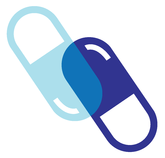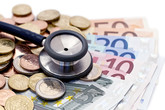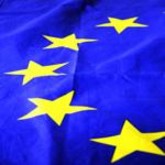Reports
TGA approves three biosimilars but fewer generics in 2017
Australia’s Therapeutic Goods Administration (TGA) approved fewer generics in 2017 (101) compared to 2016 (118). However, 2017 also saw a large proportion of new registrations of immunotherapies and human monoclonal antibodies, while the listing of new ‘first generic’ medicines triggered a statutory 16% price reduction under the Pharmaceutical Benefits Scheme (PBS). In addition, the agency also approved three new biosimilars.
National experience with public procurement of biosimilars
In the third Multi-stakeholder Workshop on Biosimilar Medicinal Products organized by the European Commission [1], it included a session on ‘Biological Medicines Access Mechanisms: Balancing Access and Freedom of Prescription’. The session was designed to explore whether the EU Public Procurement Directive is fit for purpose in benefitting patient access and safety, physician choice, security of supply and sustainability of an affordable healthcare system, including innovation in new medicines and availability of biosimilars.
EC workshop aims to improve access to biosimilars
With the aim of encouraging equitable and timely access to biosimilars in Europe, the European Commission (EC) held its third workshop on biosimilars in Brussels, Belgium on 5 May 2017 [1].
Establishing interchangeability for biosimilars in the US
The European Commission held a Stakeholder Event on Biosimilar Medicinal Products in Brussels, Belgium on 5 May 2017. During this event Dr Hans Ebbers of the Medicines Evaluation Board (MEB/CBG) in The Netherlands discussed how interchangeability for biosimilars is established in the US.
Interchangeability and switching study designs for biosimilars
In an information guide for healthcare professionals jointly prepared by the European Medicines Agency (EMA) and the European Commission (EC), interchangeability refers to the possibility of exchanging one medicine for another medicine that is expected to have the same clinical effect. In terms of biologicals, this could mean replacing a reference product with a biosimilar (or vice versa) or replacing one biosimilar with another [1].
Establishing interchangeability for biosimilars
Dr Hans Ebbers, Regulatory Project Leader of the Pharmacotherapeutic Group III at the Medicines Evaluation Board (MEB/CBG) in The Netherlands discussed how to establish interchangeability at the European Commission stakeholder event on biosimilar medicinal products, which was held in Brussels, Belgium on 5 May 2017.
Is a biosimilar forever or just for Christmas?
Dr Elena Wolff-Holz discussed the need for clinical studies and the evolution of biosimilars over time. During her keynote address at the biosimilar medicines conference in London, UK, Dr Wolff-Holz highlighted that the ‘need for clinical studies may depend on the size and complexity of the biological and the clinical indications sought. Some examples of this include:
The importance of EPARs
Dr Elena Wolff-Holz* discussed the importance of European public assessment reports (EPARs) at a major biosimilar medicines conference in London, UK [1].
Biosimilars in the European Union
Dr Elena Wolff-Holz gave a keynote address at Medicines for Europe’s 15th Biosimilar Medicines Conference: Biosimilar Medicines: A game changer for healthcare sustainability [1].
Switching approaches to biosimilars in Nordic countries
In the European Union (EU), decisions on the interchangeability or substitution of biosimilars and originator biologicals are not made by the European Medicines Agency (EMA), but at the national level. This is despite the fact that biosimilars developed in line with EU requirements are considered by EMA to be therapeutic alternatives to their reference biologicals.













